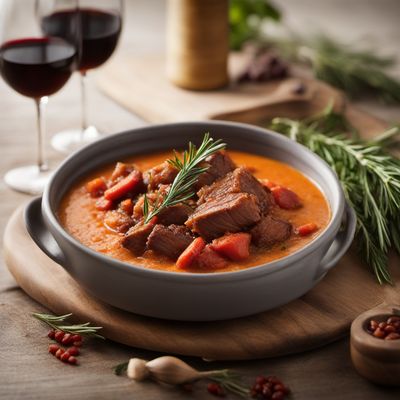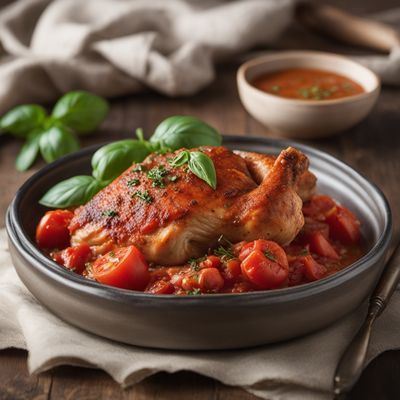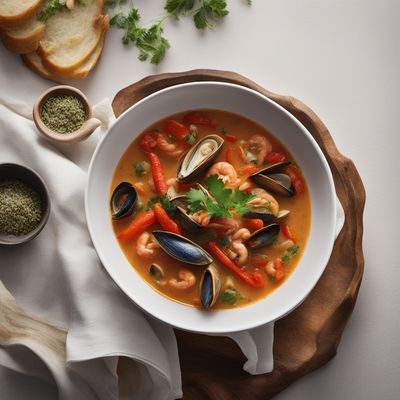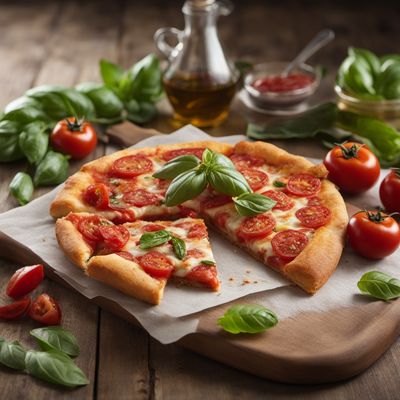
Cuisine
Tuscan cuisine
Tuscan cuisine is a regional cuisine from Tuscany, Italy. It is characterized by its simplicity, using fresh and high-quality ingredients to create flavorful dishes. Tuscan cuisine is heavily influenced by the Mediterranean diet, which emphasizes the use of olive oil, vegetables, fruits, and fish. Tuscan cuisine is also known for its use of bread, which is often used to make soups and salads.
Typical ingredients
Olive oil, Tomatoes, Beans, Bread, Cheese, Meat, Game, Vegetables, Fruits, Herbs
Presentation and garnishing
Tuscan cuisine is often presented in a rustic and simple manner, with dishes served family-style. Garnishes are often minimal, with a focus on the natural flavors of the ingredients.
Tuscan cuisine is also known for its use of offal, such as tripe and liver. These ingredients are often used in traditional dishes such as Lampredotto and Fegatelli alla griglia.
More cuisines from this region...
Sicilian cuisine, Venetian cuisine, Neapolitan cuisine, Apulian cuisine, Sardinian cuisine, Lombard cuisine, Ligurian cuisine, Roman cuisine, Abruzzese and Molisan cuisine, Basilicatan (Lucanian) cuisine
History
Tuscan cuisine has a long history dating back to the Etruscan civilization. The cuisine has been influenced by various cultures, including the Greeks, Romans, and Arabs. During the Renaissance, Tuscan cuisine became popular among the wealthy and was known for its use of meat and game. Today, Tuscan cuisine is known for its simplicity and use of fresh ingredients.
Cultural significance
Tuscan cuisine is an important part of Italian cuisine and is known for its simplicity and use of fresh ingredients. It is also known for its wine, including Chianti and Brunello di Montalcino. Tuscan cuisine has influenced many other cuisines around the world.
Health benefits and considerations
Tuscan cuisine is known for its health benefits, as it emphasizes the use of fresh and high-quality ingredients. The Mediterranean diet, which Tuscan cuisine is based on, has been linked to a reduced risk of heart disease, stroke, and other chronic diseases. However, some Tuscan dishes can be high in fat and calories, so portion control is important.
Tuscan cuisine recipes Browse all »

Tuscan-inspired Pork Stew with Polenta
Rustic Tuscan Pork Stew: A Hearty Delight with Creamy Polenta

Tuscan-style Ribollita
Hearty Tuscan Ribollita: A Rustic Delight

Trout alla Toscana
Tuscan-inspired Trout Delight

Tuscan-style Apricots with Cream
Sun-kissed Delights: Tuscan Apricots with Cream

Tuscan-style Chicken with Herb Infused Tomato Sauce
Tuscan Herb-Infused Chicken in Tomato Sauce

Malida alla Toscana
Tuscan Delight: Malida with a Twist

Tuscan Almond Biscuits
Delizie di Mandorle: Tuscan Almond Biscuits

Tuscan Seafood Stew
Mediterranean Delight: Tuscan Seafood Stew

Tuscan-style Poached Pears
Pere in Brodo: A Tuscan Twist on Poached Pears

Tuscan Honey Ricotta Fritters
Delizie di Ricotta: Tuscan Honey Ricotta Fritters

Curd and Honey Tart
Tuscan Twist: Creamy Curd and Honey Tart

Tuscan-style Deep-Fried Pizza
Crispy Tuscan Delight: Deep-Fried Pizza with a Tuscan Twist